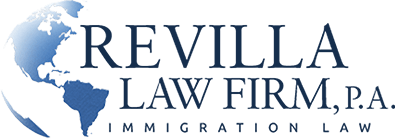HAVANA — After more than a half-century of Cold War estrangement, the United States reopened its six-story embassy in Havana on Monday, and Cuba raised a flag outside its own stately embassy in Washington.
The resumption of diplomatic relations between the two nations — a historic milestone in the official thaw that President Obama set in motion last year — was the culmination of months of negotiations to overcome decades of enmity.
But the promise of restoring full ties remained remote. Even as top American and Cuban diplomats held a meeting at the State Department for the first time in decades, Cuba’s foreign minister railed against the United States’ travel restrictions, trade embargo and presence at the military base at Guantánamo Bay.
The Cuban official, Bruno Rodríguez, said those policies must end before the two countries could bring their grudge to a close, and lend “some meaning to the historic event that we are witnessing.”
“The challenge is huge,” Mr. Rodríguez said at the embassy in Washington, where he lifted the same flag that flew over the three-story brick and stone building when ties were abruptly severed in 1961.
Mr. Rodríguez invoked the “nefarious consequences” of the Platt Amendment, a series of conditions written into the Cuban Constitution that gave the United States sway over Cuban affairs and the right to establish military bases in Cuba.
Many questions on the closer relations between Washington and Havana have yet to be answered, including: Will the trade embargo, which has crippled Cuba’s economy, be lifted, and if so, when? Will the Cuban government improve its human rights record and incorporate outsiders into the political spectrum? How much, and how fast, will the lives of ordinary Cubans, who earn $20 a month on average, improve?
But for now, the reopening of the embassy on the Malecón waterfront in Havana, previously used as an interests section — a limited diplomatic outpost — brought another reason for hope among many Cubans that the country is changing, albeit slowly.
“The genie is out of the bottle,” said Carlos Alzugaray Treto, a former Cuban diplomat who is close to President Raúl Castro and his brother Fidel, the country’s longtime president. “And once it’s out, you’re not going to be able to put it back in.”
In Havana, a line had already formed at 6 a.m. along the side of the embassy. Families clutched sheafs of paper as they awaited interviews and appointments with officials.
Beyond the edge of the tidy line, hundreds more gathered in a small park awaiting their turn, and dozens more formed a separate line beyond that. For the first time in decades, American Embassy personnel were managing the order of entrants, taking names, calling names, answering questions.
Many of those waiting had relatives in the United States they planned to visit or live with. Almost all had made appointments months — some said years — earlier to facilitate their visas, and, they said, they had just happened to arrive on the building’s first day as an official embassy.
“To be honest, I’m a little nervous,” said Ramon Castillo Pérez, 59, who was waiting to visit the United States for the first time, a trip that would reunite him with his wife. The trip would be a permanent one, if all went well — his wife was sponsoring his arrival.
For now, though, the change at the embassy was barely perceptible from the outside, arguably a metaphor for the state of Cuba itself. And if Cubans were expecting an official celebration on Monday, they were sorely disappointed.
The official events to inaugurate the American Embassy will not take place until later in the summer, when Secretary of State John Kerry plans to visit, to formally raise the flag and install new signs.
In Washington, however, shouts of “Viva Cuba” rang out and tears rolled down Cuban diplomats’ cheeks as Mr. Rodríguez raised the flag and the Cuban national anthem played.
Inside the embassy, in a speech to diplomats, lawmakers and activists, Mr. Rodríguez expressed hope for “a dialogue based on mutual respect and sovereign equality.” And he thanked Mr. Obama for pushing for an end to the trade embargo and relaxing some travel and commercial restrictions.
Throngs of onlookers gathered to witness the raising of the flag, as critics and supporters of the opening jockeyed for attention with banners, signs and chants.
“Salsa sí, embargo no,” read one banner facing the embassy, while opponents of the Cuban government stood nearby with placards that said “Human rights now” and “No to dictatorship.”
“It is sort of like a wedding,” said James Williams, the president of an advocacy group, Engage Cuba, which has been lobbying for improved relations. “You’ve spent all this time planning your wedding day, and finally you’re getting to see someone walk down the aisle.”
“Now,” he added, “you have the rest of your life together.”
At a news conference at the State Department, Mr. Kerry said he would travel to Havana on Aug. 14 to celebrate the re-establishment of the embassy there. Officials at the department made sure that little public attention was paid to the addition of a Cuban flag in the building’s lobby where the flags of all the nations that have diplomatic relations with the United States are displayed.
But Mr. Kerry called it “a historic day, and a day for removing barriers.”
“Of course, this milestone does not signify an end to differences that still separate our governments,” Mr. Kerry said, switching between Spanish and English. “But it does reflect the reality that the Cold War ended long ago, and that the interests of both countries are better served by engagement than by estrangement.”
http://www.nytimes.com/2015/07/21/world/americas/cuba-us-embassy-diplomatic-relations.html?_r=0
REVILLA LAW FIRM, P.A.
Miami Immigration Attorneys
Contact the Miami immigration lawyers at Revilla Law Firm, P.A., for quality legal representation on any immigration matter. We offer a free initial immigration case evaluation in our Miami office with Former U.S. Immigration Prosecutor and Immigration Attorney, Antonio G. Revilla III.
Whether you are facing deportation or just require legal guidance from an experienced immigration attorney, please contact us today.
Miami office: (305) 858-2323 or toll free (877) 854-2323.


